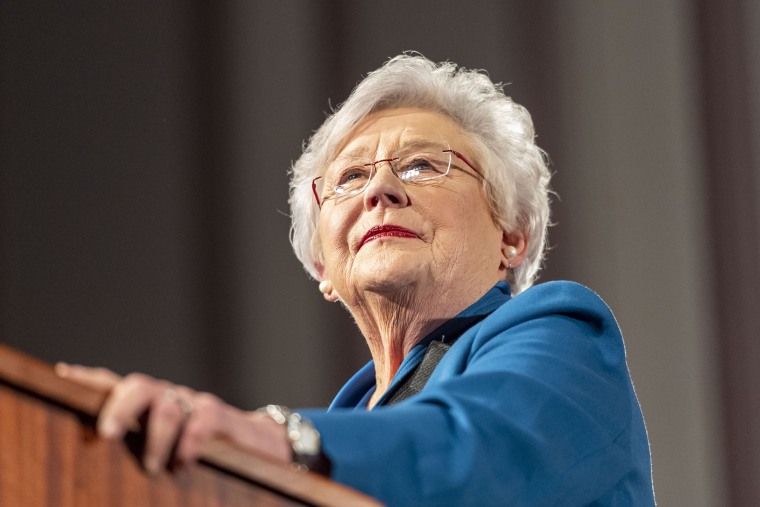A couple of weeks ago, Alabama Attorney General Steve Marshall was on Capitol Hill, testifying before the Senate Judiciary Committee. Democratic Sen. Sheldon Whitehouse asked the Alabama Republican whether President Joe Biden had been “duly elected.” Marshall refused to answer directly.
It was a discouraging exchange — the two went back and forth for a while, with the senator seeking a straight answer, and with the Alabaman refusing to respond with one — and a frustrating example of a statewide GOP officeholder refusing to acknowledge the legitimacy of Biden’s election victory more than 17 months after Election Day 2020.
Marshall, of course, has an unsettling amount of company. Soon after the state attorney general’s testimony, The New York Times reported on House Republican Conference Chair Elise Stefanik, who has “repeated Mr. Trump’s lies about the 2020 election being stolen and refused to acknowledge Mr. Biden as the legitimately elected president.”
It’s against this backdrop that AL.com reported on the latest television commercial in the state’s gubernatorial race.
Alabama Gov. Kay Ivey claimed the 2020 election was stolen from Donald Trump by “the fake news, Big Tech and blue state liberals” in a campaign ad released Monday, making her the latest high-profile candidate to support unfounded conspiracy theories that the election was illegitimate.
In the commercial titled, “Stole,” the incumbent Republican governor, in a direct-to-camera message to voters, says, “The fake news, Big Tech and blue state liberals stole the election from President Trump, but here in Alabama, we are making sure that never happens.” After criticizing absentee ballots and curbside voting — she inexplicably referred to the latter as “corrupt” — Ivey concludes, “The left is probably offended — so be it.”
Of course, this isn’t about left vs. right, the issue at hand is about lies vs. reality.
It’s likely that some of the governor’s allies will suggest the ad is simply a political ploy. Ivey probably knows Donald Trump lost fair and square, the argument goes, but she feels the need to lie because she’s facing a competitive primary. The more the governor can pander to the former president and his conspiratorial followers, the better her odds of electoral success.
Except, that’s not much of a defense. Telling cynical lies to advance one’s political ambitions is brazenly unethical, even if it’s effective.
Of course, the alternative is that Ivey actually believes the nonsense she peddled in her campaign commercial, which is hardly any better.
But stepping back, it’s the larger context that matters most. A year and a half after Trump’s defeat, we’re still confronting a political landscape in which much of the GOP is defined by the Big Lie. The party embraced election denialism in the immediate aftermath of the former president’s loss, and as Ivey is helping prove, too many Republicans still haven’t let go.
Just as important is the degree to which these lies have been effective. For over a year, polls have shown a majority of GOP voters have bought into the baseless conspiracy theories, reality be damned.
Rank-and-file Republicans look to party leaders for cues about what to believe, and the more folks like Ivey lie to them, the more these voters assume the lies have merit.
Related:

